A chronic lack of sleep can disrupt both our physical and mental health. People usually take sleeping pills to deal with insomnia and bad dreams, but low doses of cannabis can be an effective sleep enhancement.
Let’s explore the effects of CBD vs THC on sleep.
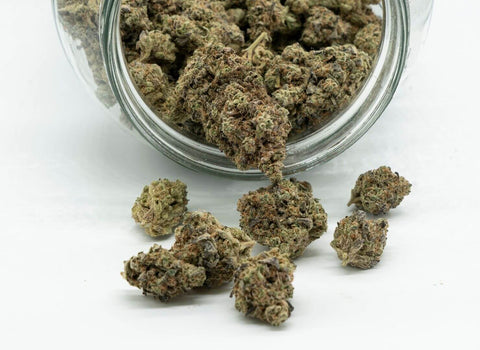
Which is better for sleep: THC or CBD? The answer is—both! Read on to learn why taking both cannabinoids together is better than either on their own.
There is no better way to get small amounts of THC and CBD than with our amazing edibles. Learn where to buy the best Delta 9 gummies in the US.
Before we get started, take a look at our guide to Delta 9 THC. Also, make sure you refresh your memory on cannabidiol with this awesome introduction to CBD.
Understanding Sleep
Sleep is one of the most basic human needs, critical to both physical and mental health. The average person spends about one-third of their lifetime sleeping.
According to the National Sleep Foundation, most adults require about seven to nine hours of restful sleep every night. However, the statistics show that nearly 30% of adults get less than six hours of sleep, leaving more than 50 million Americans with chronic sleep deprivation, many with sleep disorders.
Sleep is vital for a number of brain functions. Without it, we wouldn’t be able to form or maintain the pathways in our brains that regulate cognitive functioning (memory, learning, and concentration). Sleep also affects our cardiovascular system, lungs, metabolism, immune function, mood, and disease resistance.
Researchers have linked a chronic lack of sleep and poor sleep quality with:
- Increased risk of high blood pressure
- Cardiovascular diseases
- Diabetes
- Obesity
- Depression
- Migraines
- Increased risk of infection
Sleep architecture is important for understanding how sleep works and why it is so important for our overall health. Sleep architecture refers to the time spent in different sleep stages. Let’s see what happens when we hit the sack.
The Anatomy of Sleep
Researchers have divided sleep into two basic stages: rapid eye movement (REM) sleep and non-rapid eye movement (NREM) sleep. Both are linked to particular brain waves and neuronal activity, making them crucial for healthy sleep.
NREM Sleep
The first part of the cycle is non-REM sleep. Scientists once believed that REM sleep was the most important sleep phase, but more recent research has revealed that NREM sleep is equally vital for normal cognitive functioning.
Non-REM sleep has four different stages.
- The first stage marks the short period you need to go from being awake to falling asleep.
- In the second stage, your heart rate, breathing, and eye movement slows, while the muscles relax with occasional twitches. Your brain waves also begin to slow.
- The third NREM sleep stage is a period of light sleep just before you enter deeper sleep. The heartbeat drops and muscles relax even move. Eye movement completely stops. Brain waves are reduced and occur in brief bursts of electrical activity. You spend more sleep cycles in stage three sleep than in any other sleep stages.
- The last NREM sleep is the period of deep sleep you need to feel well-rested in the morning. The heartbeat and breathing slow to their lowest levels during sleep.
REM Sleep
REM sleep is characterized by rapid eye movements behind closed lids, during which your brain waves resemble those of your waking state. It typically occurs about 90 minutes after falling asleep. Your heart rate and blood pressure go up, and your breathing gets faster and more irregular.
If someone tries to awaken you during REM sleep, they might need more than a nudge since your muscles are completely relaxed, even temporarily paralyzed. But that’s a good thing. Otherwise, you’d be acting out your dreams, since most of your dreaming occurs in REM sleep.
Sleep Mechanisms
To regulate your sleep-wake cycles, our body employs two internal biological mechanisms: circadian rhythm and sleep drive.
Circadian Rhythms
Circadian rhythms are controlled by a biological clock located in your brain. Its main function is to respond to light cues: at night, it increases production of melatonin and switches the process off when it senses light. It’s not unusual for people with total blindness to experience trouble sleeping, as they are unable to detect and respond to light cues.
Circadian rhythms also affect other functions like body temperature, metabolism, daily fluctuations in wakefulness, and the release of hormones. Maybe you wake up in the morning without an alarm. Or you feel sleepy around the same time each night. These functions are due to your biological clock, which controls your circadian rhythms.
Have you ever been jet-lagged? As you change time zones, your circadian rhythm goes out of sync with the time of day, resulting in a discrepancy between your internal clock and the actual time.
Sleep Drive
Your sleep drive also plays an important part in the sleep-wake cycle. Throughout the day, your desire for sleep builds up. Once it reaches a certain point, you need to sleep because your body craves it. When you’re exhausted, the body is able to engage in sleep that lasts a second or two—while your eyes are still open—and rest.
Napping for more than 30 minutes in a day can disrupt your night’s sleep patterns by reducing the natural sleep drive.
Disruption in our sleep patterns may lead to circadian rhythm disorders. These have the potential to significantly disrupt the sleep-wake cycle.
Sleep Disorders
Sleep disorders (sleep-wake disorders) refer to problems with the quality and amount of sleep, which may result in daytime distress and impairment in functioning.
Lack of sleep or poor sleep quality can lead to many sleep disorders and have a wide range of potential consequences. A person who is sleep deprived might experience fatigue, low energy levels, irritability, and a lack of focus. Their ability to make decisions and their mood might be affected. Sleep disturbances can interfere with cognitive function, which can lead to memory impairment and learning disabilities.
Typically, sleep disorders are symptoms of underlying health problems, physical or mental. However, they can also contribute to or exacerbate mental health conditions. Sleep disturbances can also be a symptom of medical and neurological problems, such as osteoarthritis, congestive heart failure, and Parkinson’s disease.
Some common sleep-wake disorders include:
- Insomnia
- Obstructive sleep apnea
- Central sleep apnea
- Narcolepsy
- Rapid eye movement sleep behavior disorder
- Restless leg syndrome
- Parasomnia
Insomnia
Insomnia is the difficulty falling or staying asleep. People suffering from it typically wake up during the night and have trouble falling asleep again. They also experience at least one daytime problem, such as fatigue, sleepiness, problems with mood and concentration, etc. due to lack of sleep.
Sleep Apnea
Sleep apnea can be a serious sleep disorder that involves problems with breathing during sleep. There are two types of sleep apnea: obstructive and central.
Obstructive sleep apnea is caused by a blockage of the airway (the soft tissue in the back of the throat) and includes symptoms like snoring, daytime sleepiness and fatigue, gasping for air while sleeping, and problems with concentration. It is more common than central sleep apnea.
Central sleep apnea could be an even more serious sleep condition. It occurs when the brain (central nervous system) fails to tell the body to breathe. People with central sleep apnea report gasping for air during sleep and frequent awakenings.
Restless Leg Syndrome
Restless leg syndrome can cause intense urges to move the legs during sleep. It usually occurs in the evening, making it difficult to fall asleep. People with restless leg syndrome often feel the irresistible urge to walk around and shake their legs to relieve the uncomfortable sensation.
Treatment of Sleep Disorders
Healthcare providers typically recommend medications or supplements and counseling as the main parts of the treatment. Prescribed medications for sleep disorders (e.g., sleeping pills) come with a long list of side effects that may even worsen the condition after prolonged use. In addition, most of these medications can lead to dependence.
While many people still rely on heavy medication for alleviating their sleep disorders, there are those who turn to more natural, risk-free remedies, such as microdosing cannabis.
Cannabis has been used as a natural sleep aid for centuries. Statistics show that among long-term cannabis users (10 years and more), about half of them use cannabis to treat sleep issues and improve sleep.
If this is your first time hearing about this, our guide to microdosing cannabis is perfect for you.
Tetrahydrocannabinol (THC) and cannabidiol (CBD) are potent sleep aids. In explaining how they affect sleep, we have to look at them through the lens of our endocannabinoid system.
THC vs CBD in the Endocannabinoid System
The endocannabinoid system (ECS) is a complex network composed of signals and receptors. Experts are still trying to determine how the ECS works exactly, but some research links it to the regulation of:
- Emotions
- Mood
- Appetite
- Memory
- Muscle formation
- Liver function
- Immune system
- Reproduction
- Sleep
All experts seem to agree that the main role of the ECS is to contribute to homeostasis and keep our internal environment in balance. When an outer force (e.g., illness, injury) disrupts our body’s homeostasis, our endocannabinoid system fights to restore that balance.
Our endocannabinoid system has two primary types of cannabinoid receptors: CB1 and CB2 receptors. CB1 receptors are known as “central” since they are located primarily in the central nervous system. CB2 cannabinoid receptors are predominantly peripheral and found in the immune cells, lung, and liver tissues, with a small percentage of CB2 receptors found in the brain.
A series of experiments conducted on mice reported that blocking the CB1 cannabinoid receptors in the endocannabinoid system reduces NREM sleep time and stability. The research hypothesizes that endocannabinoid signaling through CB1 receptors might be vital for NREM stability.
Activation of CB1 Receptors and Anandamide
The endocannabinoid system does consist of receptors and signals, but also of endogenous lipid ligands that bind naturally to CB1 and CB2 receptors. The first CB1 agonist to be discovered in the ECS was anandamide. Preclinical studies have shown that anandamide, among other elements of the ECS, is involved in neurobiological functions, including the control of the sleep-wake cycle.
A group of scientists has shown how anandamide increases slow-wave sleep and REM sleep while reducing wakefulness in rats. Anandamide also affects memory formation, locomotor activity (movement and motion), and pain perception. The results suggest that the endocannabinoid system actively participates in the regulation of sleep-wake cycles, mainly through the activation of the CB1 receptors.
The role of anandamide in sleep regulation does not stop there. It seems that the circadian rhythm of rats relies on anandamide. In a 2005 study, the anandamide levels in the hypothalamus were higher during the day, when rats are typically asleep and inactive, and lower at night, when rats rest. (Rats are nocturnal creatures, so their circadian rhythms are in opposition to ours.)
To cement its role as a natural sleep aid, it appears that anandamide increases levels of adenosine. Adenosine is a neurotransmitter that occurs naturally in our cells. One of its most important functions is to induce sleepiness. Adenosine is released in the front part of the brain (basal forebrain) when energy is used; the longer the person stays awake, the greater their need for sleep will be. By boosting sleep drive, adenosine helps maintain the sleep-wake cycle's homeostasis.
As you can see, the endocannabinoid system is complex, and its elements are vital to sleep and other important functions in our body. Phytocannabinoids (cannabinoids that come from plants) have the same effect on the ECS as endogenous cannabinoids. The sleep-promoting effects of THC and CBD come as a result of their interactions with the brain’s cannabinoid receptors.
How do THC and CBD Interact with the ECS?
THC binds to both CB1 and CB2 cannabinoid receptors. This activation of CB1 receptors is responsible for the therapeutic effects of THC: analgesic, anticonvulsant, and antiemetic. Low doses of THC can help with chronic pain, treat seizures and mood disorders, and suppress nausea and vomiting. Many cannabis users microdose THC for its beneficial sedative effects.
THC activates CB1 receptors to increase levels of adenosine. By promoting sleep, adenosine suppresses our brain’s arousal system, sending the message that it’s not the time to be energized and excited. (Unless you’re super excited about hitting the sack.)
Cannabidiol does not bind to either CB1 or CB2 receptors. Instead, CBD is able to antagonize, or down-modulate, the effects of cannabinoid receptors in the presence of THC. When taken together, CBD regulates how THC interacts with them, reducing the likelihood of psychoactive effects from THC.
Some experts claim that CBD actually inhibits the enzymes that break down endocannabinoids. This would mean that CBD could boost the beneficial activities of the ECS by allowing our bodies’ cannabinoids to perform their functions unobstructed.
If you’re new to microdosing cannabis, try our CBD gummies with Delta 9. They are made from hemp-derived CBD and Delta 9 THC—which makes them legal under federal law across the US—and the highest quality American hemp. Low amounts of Delta 9 in all our edibles will provide a mildly euphoric experience, balanced by an optimal CBD concentration (no more than 25 mg per gummy). Whether you’re looking to unplug, relieve pain, or spice up your Friday night, these vegan babes will deliver.
CBD or THC for Better Sleep?
CBD and THC are the two main cannabis compounds extracted from cannabis plants. Despite coming from the same plant, CBD and THC have unique qualities and health effects. Here are the main differences between THC and CBD:
- Chemical structure: CBD and THC have the exact same chemical formula, C21H30O2. They differ structurally. Where THC contains a cyclic ring, CBD has a hydroxyl group that makes it interact with the ECS differently.
- Psychoactive effects: Delta 9 THC is best known for the “high” it produces. Higher doses (25 mg and more for some users) of THC can cause psychoactive effects, while doses of 10 mg and lower do not make most users high. CBD does not produce a high at any dose.
- Dosage: a standard THC microdose is between 5 and 10 milligrams. This amount does not produce psychoactive effects. A standard dose of CBD is around 25 milligrams.
CBD and THC both have therapeutic benefits for sleep. Cannabidiol is able to relax and help users fall asleep faster at any dose, while THC brings relaxation and sleep when taken in lower doses.
Remember the sleep architecture of REM and non-REM sleep? It appears that cannabis can increase your time spent in deep sleep, the NREM sleep stage that helps you feel refreshed and well-rested in the morning.
Effects of THC on Sleep
Tetrahydrocannabinol is an effective sleep aid because it restores our natural sleep cycle. At low doses (10 mg or less for some people), THC can calm pain signals, lower anxiety, and improve sleep.
According to research, THC may increase sleep latency (the time you need to fall asleep) while decreasing REM sleep. As already mentioned, we spend more time dreaming during rapid eye movement sleep, and the more time we spend dreaming, the less time remains for deep sleep.
However, REM sleep is vital for processing emotions and cementing new memories. While a short REM sleep stage may not always be beneficial for our health, it is extremely helpful to people with posttraumatic stress disorder (PTSD).
A 2013 study on posttraumatic stress found that individuals with more severe PTSD symptoms are more likely to use cannabis to cope with anxiety and sleep deprivation. Cannabis products with higher THC content seem to significantly decrease nightmares, a common symptom of PTSD, by reducing the REM sleep stage.
Shop our collection of Delta 9 gummies to get your well-deserved shut-eye. They include low-dose cannabis products with no more than 10 milligrams of THC per gummy and between 5 and 25 milligrams of cannabidiol. All of our products are tested by independent labs to make sure they are pure and effective, and they are made with organic, non-GMO fruits and ingredients.
Whether you’re seeking to relax or fall asleep after a long day, our Relax Plus gummies are just what you need. They not only contain low doses of THC to induce sweet euphoric dreams, but are also packed with the most refreshing watermelon taste.
Effects of CBD on Sleep
CBD has a calming effect on the nervous system. Because it increases levels of serotonin, CBD products are a popular choice to treat symptoms of anxiety and mood disorders, as they lower stress and promote relaxation.
Stress, anxiety, and chronic pain can contribute to poor sleep quality, sleep deprivation, or other sleep issues. CBD lowers stress and anxiety, and by reducing inflammation, CBD is able to soothe pain signals and treat inflammatory processes in the body.
A 2019 trial review on the effects of cannabidiol on sleep argues that available THC and CBD research points to their benefits on sleep as a secondary, rather than primary, outcome. The research focuses on the treatment of chronic health conditions like posttraumatic stress disorder, pain and inflammation, multiple sclerosis, and mood disorders. Many of the reviewed studies demonstrated CBD’s ability to improve sleep quality, lower sleep disturbances, and reduce sleep onset latency.
The results of one randomized, double-blind, controlled trial showed how significant the effects of cannabidiol on sleep are. More than 1,700 participants with sleep disturbances were treated with CBD isolate, CBD and melatonin, and CBD and other minor cannabinoids (CBN, CBC). Up to 75% of all participants experienced an improvement in their sleep quality. Chronic use of low-dose cannabidiol seems to be a safe and effective alternative to traditional sleep medications, alone or in combination with melatonin and minor cannabis compounds.
Melatonin is known for its sleep-promoting qualities. It is often combined with beneficial compounds like CBD and THC to achieve the best results in treating sleep deprivation and other sleep issues. That’s why shopping for our snooze-friendly gummies with melatonin is a great idea! They contain 25 mg of CBD, a touch of melatonin, and low doses of THC and CBN.
In case you were wondering why cannabinol is in the mix, check out this awesome guide to CBN. It contains everything from pain-relieving effects to slumber-inducing properties.
THC and CBD against Sleep Disorders
THC and CBD seem to have equal therapeutic potential to improve sleep quality and treat sleep-wake disorders. A review of preliminary research on cannabinoids and sleep discovered the following:
- CBD may treat REM sleep behavior disorder and reduce daytime sleepiness.
- Delta 9 THC may decrease sleep latency.
- Synthetic cannabinoids such as nabilone and dronabinol may have a short-term effect on sleep apnea. Nabilone and dronabinol have been shown to modulate apneas caused by low levels of serotonin. Serotonin deficiency may lead to a disruption in the circadian rhythm, leading to sleep disorders. (Find out how microdosing THC boosts serotonin levels.)
- In addition, nabilone may reduce nightmares associated with PTSD.
- Phytocannabinoids and synthetic THC-based cannabinoids may improve sleep in patients with chronic pain.
Canadian researchers confirmed that medical cannabis might be a viable solution for treating insomnia and other sleep disorders. 71% of the 38 patients with sleep disturbances reported a subjective improvement in sleep or sleep-related conditions after being treated with THC and THC derivatives or THC in combination with CBD. Only 8% experienced manageable side effects that did not require them to stop using cannabis.
Sleep disorders typically stem from circadian rhythm disorders, which occur when the body’s internal clock isn’t aligned with the actual clock. They develop due to changes in sleep habits, aging, or genetics. CBD and THC improve the quantity and quality of sleep by making sure our bodies go through the sleep stages without interruption. Their combination might be particularly helpful for people who work night shifts or often change time zones, as their circadian rhythms and sleep habits are easily disrupted.
Let’s dig deeper into the benefits of CBD and THC synergy, often referred to as the entourage effect.
Product QUIZ
Need help deciding what product is best for you? Take our quiz, just three questions until your perfect match!
The Entourage Effect and Sleep
The therapeutic effects of THC and CBD on sleep are most pronounced when you take these cannabis extracts together. In the entourage effect, cannabinoids multiply each other’s benefits. Via mechanisms that are still being researched, compounds derived from cannabis plants appear to act synergistically with one another.
The benefits of CBD become more pronounced when you take CBD and THC together, and vice versa. Remember how cannabidiol antagonizes or regulates THC’s effects on receptors? That’s how the entourage effect works.
Are you interested in experiencing the highly sought-after entourage effect? Shop our full-spectrum CBD gummies. With these hemp-derived edibles made with 100% real fruit, there’ll be no tossing and turning for you.
Full Spectrum CBD
Full spectrum is a type of CBD extract that contains all the compounds found in cannabis plants, including Delta 9 THC. Our full spectrum edibles contain lower doses of THC that are safe, reliable, and effective in providing relief from insomnia or other sleep-wake disorders. They are perfect for experiencing the beneficial effects of cannabinoids working together.
Our Sleep Plus edibles combine a higher CBD content (25 mg per gummy) with low amounts of melatonin and THC. These vegan, blackberry-infused gummies will keep you safe from bed bugs and insomnia.
Broad Spectrum CBD
Broad spectrum CBD is yet another type of CBD extract. While it contains a plethora of cannabinoids, you won’t find Delta 9 THC in it. Broad spectrum products are great for people who don’t want to consume any traces of THC but still wish to reap the beneficial effects of cannabis.
You can buy our Anytime broad spectrum gummies right here.
Check out our detailed comparison of full spectrum and broad spectrum CBD to learn more about their benefits on sleep.
Side Effects of CBD vs THC
The side effects of microdosing THC and CBD are virtually nonexistent. While THC may have psychoactive properties when taken at higher doses, our low-dose edibles don’t contain enough THC to cause side effects. CBD side effects are generally mild, harmless, and temporary.
Here are some potential side effects that long-term cannabis users may feel at higher doses.
When it comes to sleep, heavy cannabis use may have consequences such as:
- Less sleep
- Less time spent in deep sleep
- Increased sleep latency
- Difficulties falling asleep
- Frequent awakenings
- Increased sleepiness
- Impaired memory
If you don’t want to experience side effects of cannabis, avoid smoking the flower and turn to reliable and safe microdosing edibles.
Try our Bliss Delta 9 gummies, infused with the most aromatic honeydew melon flavor. With only 5 mg of Delta 9 THC in each gummy, they are unlikely to produce any side effects other than complete bliss. (You’ll never wake up on the wrong side of the bed with these fruity bites.)
CBD vs THC: Legality
According to the 2018 Farm Bill, Delta 9 THC is federally legal if it is derived from hemp and if the THC content in the product does not exceed 0.3% by dry weight. The Farm Bill removed hemp and hemp derivatives from the list of controlled substances and drew a clear legal distinction between hemp and marijuana.
This means our Delta 9 edibles are legal at the federal level, including gummies with hemp-derived cannabidiol. Marijuana-derived CBD is governed by the same laws as THC derived from marijuana.
Despite federal legality, each state individually decides on hemp-derived products' legality within their state borders. See our guide to make sure your state is Delta 9-friendly.
FAQ about Sleep
Is 5 mg of THC good for sleep?
For experienced users, 5 mg of THC is a good dosage for sleep. If you’re new to THC, start with a lower dosage (1-2 mg) and work your way up to 5 mg over time.
If you’re desperate for some quality, uninterrupted sleep, try our Sleep Plus gummies. They contain only 2 mg of THC, balanced by 25 mg of CBD, and an extra helping hand of melatonin.
Is CBD better for sleep than melatonin?
Melatonin supplementation can improve sleep quality and repair sleep-wake cycles. It induces sleepiness and reduces the sleep onset latency period (the time you need to fall asleep). Research points to melatonin’s efficacy in improving sleep for people suffering from jet lag, circadian rhythm disorders, and those working night shifts.
CBD supports restful sleep, relaxes muscles and nerves, and offers relief to people with conditions such as anxiety, epilepsy, and schizophrenia. Its calming effect was associated with improved sleep scores and reduced anxiety.
Both melatonin and CBD are natural ways to improve sleep. How about joining them for an even greater effect? Our CBD gummies for sleep contain just that—low amounts of sleep-promoting melatonin and relaxing cannabidiol—to help you sleep like a log. Sweet dreams truly are made of this.
How to find high quality sleep aids?
THC edibles can effectively improve sleep quality, but it’s often difficult to choose the perfect sleep gummy. To ensure you’re taking the highest quality THC sleep aids, shop from transparent companies that:
- Carry third-party lab tested products (purity and safety first)
- Use a THC extract made from premium American hemp
- Make sure their products are Farm Bill compliant
- Don’t use artificial colorings and flavorings
- Steer clear from fillers, chemicals, and harmful GMO stuff
If you’re having trouble choosing the best sleep edible, take a look at our amazing collection of Delta 9 gummies. We use extracts derived from the finest American-grown hemp and flavors that come from real fruit. All our products are 100% vegan-friendly.
We recommend starting your nama journey with our freakishly delicious Energy gummies. These blood orange-flavored chews contain 5 mg of CBD and ultra-low amounts of THC (only 2.5 mg per serving) to uplift, relax, and provide the z’s.
Why does CBD make me so sleepy?
CBD is one of many cannabis compounds that have naturally relaxing properties, which is why you may get sleepy when taking it. Our sleep gummies with melatonin contain a powerful sleep-promoting combination of CBD and melatonin.
For the ultimate napping experience, we recommend our Sleep Plus gummies. CBD and melatonin are back at it to promote healthy sleep, but this time they are supported by ultra-low doses of Delta 9 THC. Sleep tight!
Citations:
- How Much Sleep Do We Really Need? | Sleep Foundation. (2021, March 9). Sleep Foundation. https://www.sleepfoundation.org/how-sleep-works/how-much-sleep-do-we-really-need
- Brain Basics: Understanding Sleep. (2023, February 10). National Institute of Neurological Disorders and Stroke. https://www.ninds.nih.gov/health-information/public-education/brain-basics/brain-basics-understanding-sleep
- Zou, S., & Kumar, U. (2018, March 13). Cannabinoid Receptors and the Endocannabinoid System: Signaling and Function in the Central Nervous System. PubMed Central (PMC). https://doi.org/10.3390/ijms1903083
- Pava, M. J., Makriyannis, A., & Lovinger, D. M. (2016, March 31). Endocannabinoid Signaling Regulates Sleep Stability. Endocannabinoid Signaling Regulates Sleep Stability | PLOS ONE. https://doi.org/10.1371/journal.pone.0152473
- Anandamide modulates sleep and memory in rats. (1998, November 24). Anandamide Modulates Sleep and Memory in Rats - ScienceDirect. https://doi.org/10.1016/S0006-8993(98)00969-X
- Diurnal variation of arachidonoylethanolamine, palmitoylethanolamide and oleoylethanolamide in the brain of the rat. (2006, January 23). Diurnal Variation of Arachidonoylethanolamine, Palmitoylethanolamide and Oleoylethanolamide in the Brain of the Rat - ScienceDirect. https://doi.org/10.1016/j.lfs.2005.12.028
- Cannabis, Cannabinoids, and Sleep: a Review of the Literature - PubMed. (2017, April 1). PubMed. https://doi.org/10.1007/s11920-017-0775-9
- Using cannabis to help you sleep: Heightened frequency of medical cannabis use among those with PTSD. (2013, December 31). Using Cannabis to Help You Sleep: Heightened Frequency of Medical Cannabis Use Among Those With PTSD - ScienceDirect. https://doi.org/10.1016/j.drugalcdep.2013.12.008
- Kuhathasan, N., Dufort, A., MacKillop, J., Gottschalk, R., Minuzzi, L., & Frey, B. N. (2019). The use of cannabinoids for sleep: A critical review on clinical trials. Experimental and Clinical Psychopharmacology, 27(4), 383–401. https://doi.org/10.1037/pha0000285
- Saleska, J. L., Bryant, C., Kolobaric, A., Colwell, C. S., Loewy, D., Chen, J., & Pauli, E. K. (2023, January 23). The safety and relative effectiveness of non-psychoactive cannabinoid formulations for the improvement of sleep: a double-blinded, randomized controlled trial. medRxiv. https://doi.org/10.1101/2023.01.20.23284842
- Cannabis, Cannabinoids, and Sleep: a Review of the Literature - PubMed. (2017, April 1). PubMed. https://doi.org/10.1007/s11920-017-0775-9
- Vaillancourt, R., Gallagher, S., Cameron, J. D., & Dhalla, R. (2022, April 15). Cannabis use in patients with insomnia and sleep disorders: Retrospective chart review. PubMed Central (PMC). https://doi.org/10.1177/17151635221089617
- Zisapel, N. (2018, January 15). New perspectives on the role of melatonin in human sleep, circadian rhythms and their regulation. PubMed Central (PMC). https://doi.org/10.1111/bph.14116
- Shannon, S., Lewis, N., Lee, H., & Hughes, S. (2019, January 7). Cannabidiol in Anxiety and Sleep: A Large Case Series. PubMed Central (PMC). https://doi.org/10.7812/TPP/18-041
nama CBD FDA & Legal Disclaimer
This article is for informational purposes only, and does not constitute medical advice. Our products are not intended to diagnose, treat, cure, or prevent any disease. They are not a replacement for prescription medications and have not been evaluated by the Food and Drug Administration (FDA).
The information provided on this website does not, and is not intended to, constitute legal advice or any statements of the status of any laws. Any information, content, and materials available on this site are for general informational purposes only, and are not intended to be relied upon for any purpose.
Readers of this website should contact their attorney to obtain advice with respect to any particular legal matter including decisions on what products are, or are not, legal to sell, possess, or consume. No reader, user, or browser of this site should act or refrain from acting on the basis of information on this site without first seeking legal advice from their own counsel in the relevant jurisdiction.
Only your individual attorney can provide assurances that the information contained herein – and your interpretation of it – is applicable or accurate for your particular situation. Use of, and access to, this website or any of the links or resources contained within the site do not create an attorney-client relationship between the reader, user, or browser, and website authors, contributors, contributing law firms, or committee members and their respective employers.
More From the nama Family
Small batch edibles crafted for different times of the day and experiences.
More articles
About
Learn
Join us on this journey

© Copyright 2025 nama Products LLC. All Rights Reserved.
†These statements have not been evaluated by the Food and Drug Administration. These products are not intended to diagnose, treat, cure or prevent any disease. All information presented here is not meant as a substitute for or alternative to information from health care practitioners. Please consult your health care professional about potential interactions or other possible complications before using any product.
††The information provided on this website does not, and is not intended to, constitute legal advice or any statements of the status of any laws. Any information, content, and materials available on this site are for general entertainment purposes only, and are not intended to be relied upon for any purpose.
123 John Doe Street
Your Town, YT 12345
Store Hours
Sun: Closed
Mon-Fri: 9:00 - 17:00
Sat: 10:00 - 13:00
What to expect at pickup
Closed
Closing at 5pm
Closing at 5pm
Closing at 5pm
Closing at 5pm
Closing at 5pm
Closing at 1pm





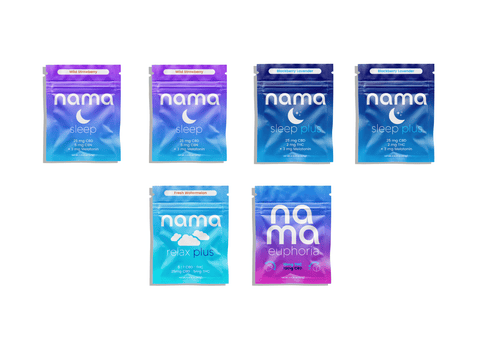
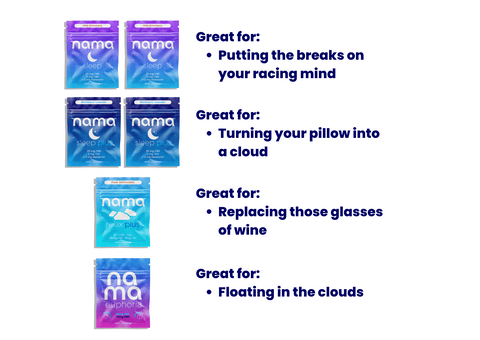
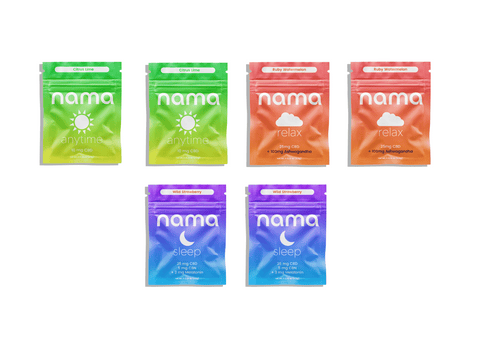
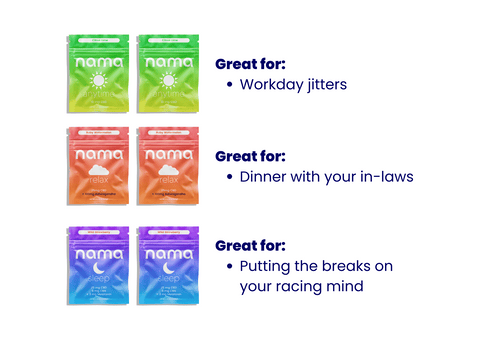
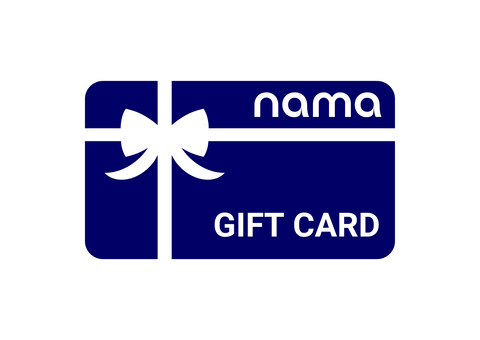







![Buzz Packs™ [THC and CBD Powder Drink Mix]](http://www.namacbd.com/cdn/shop/files/nama_buzz_packs_thc_drink_pack_white_background.png?v=1741884660&width=480)
![Buzz Packs™ [THC and CBD Powder Drink Mix]](http://www.namacbd.com/cdn/shop/files/Buzz_Packs_Label.png?v=1741884660&width=480)


![Buzz Drops™ [THC Drink Drops]](http://www.namacbd.com/cdn/shop/files/nama_thc_buzz_drops.png?v=1711412866&width=480)
![Buzz Drops™ [THC Drink Drops]](http://www.namacbd.com/cdn/shop/files/buzz-drop-wine-comparison.png?v=1736882023&width=480)


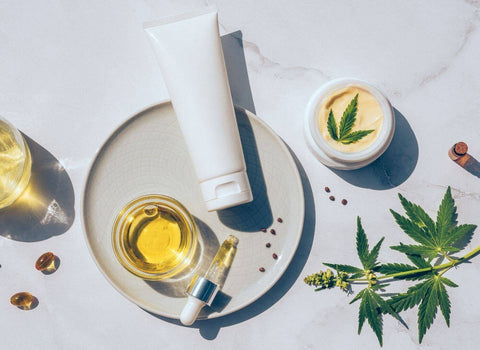
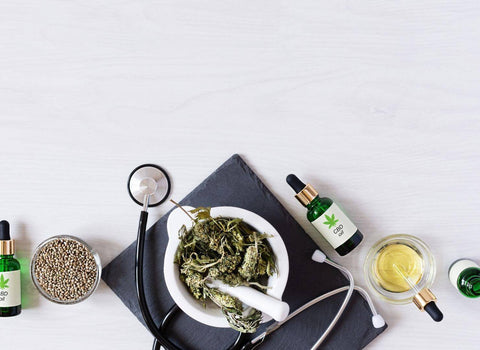


Comments (0)
There are no comments for this article. Be the first one to leave a message!